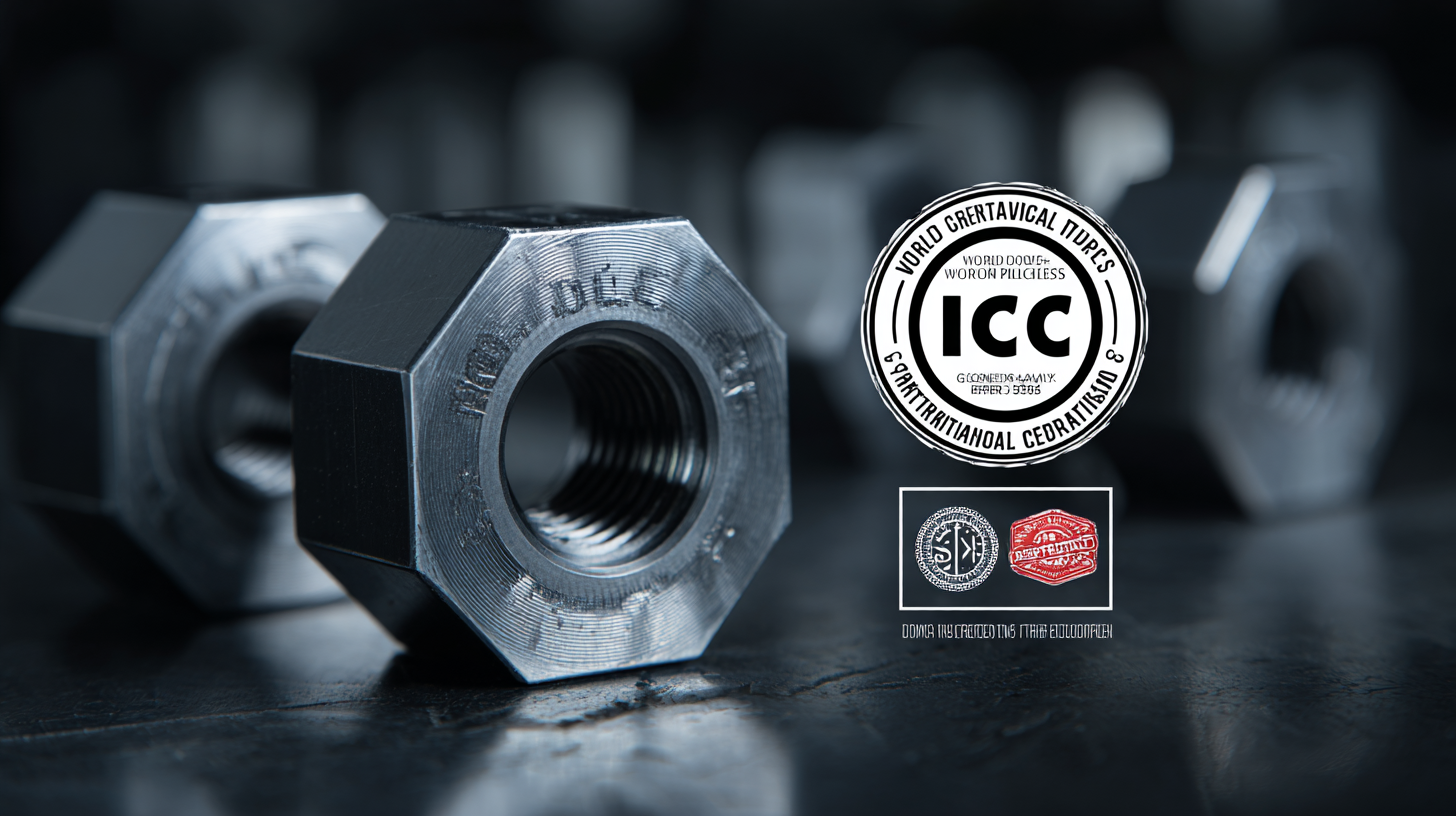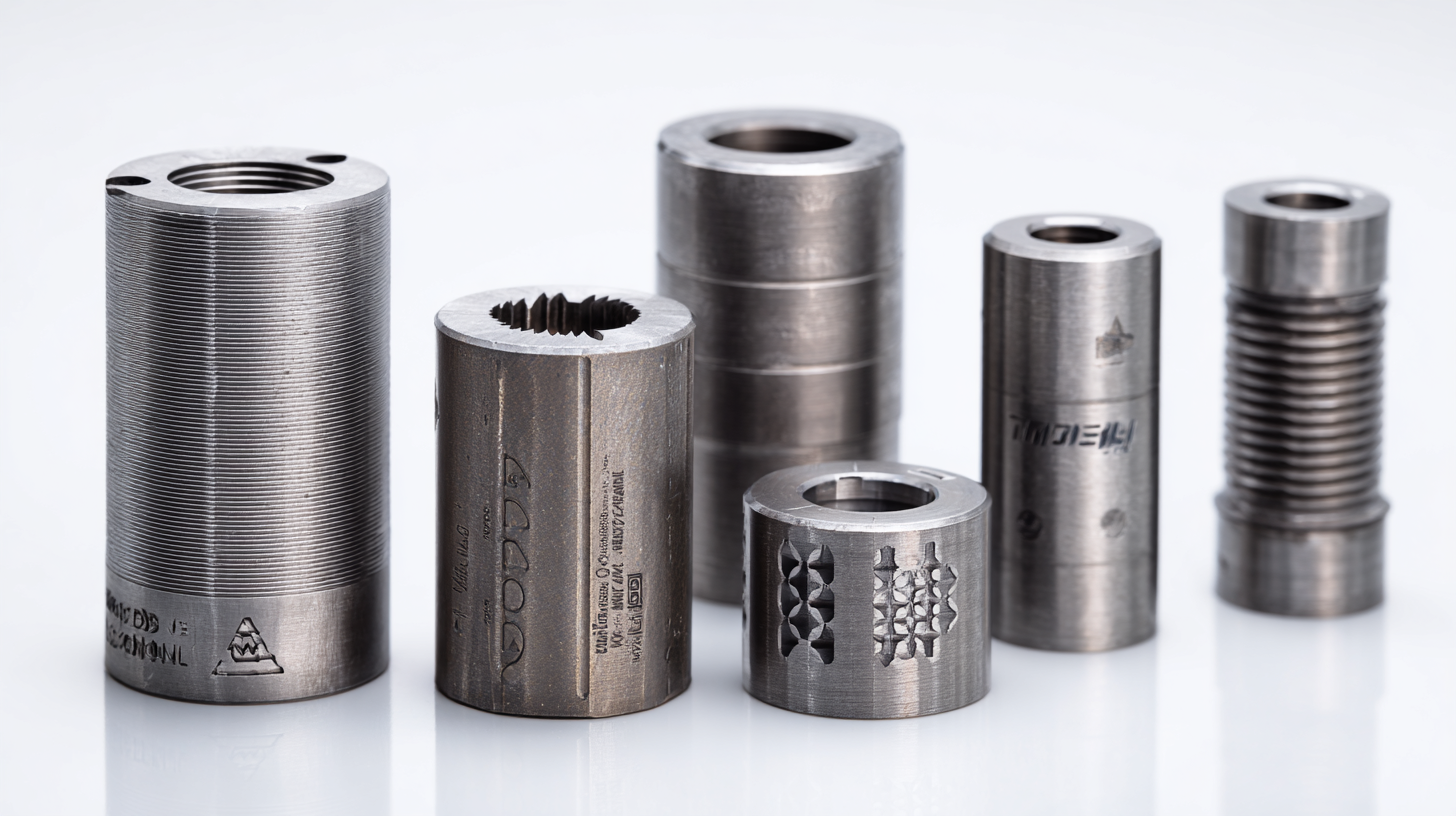
World Class Thread Rolling Dies Compliance with International Certification Standards
In the highly competitive manufacturing landscape, the quality and reliability of components such as Thread Rolling Dies play a critical role in ensuring operational efficiency and product integrity. According to the Allied Market Research report, the global die casting market is expected to reach $82.17 billion by 2027, highlighting the increasing demand for precision-engineered components across various industries. As companies strive to meet international certification standards, finding a high-quality supplier for Thread Rolling Dies becomes essential. Meeting these standards not only enhances product performance but also fortifies a company’s reputation in a market that increasingly values compliance and quality. This blog will explore effective strategies for identifying top-tier suppliers, providing a comprehensive checklist to ensure that manufacturers can secure the best Thread Rolling Dies that adhere to industry standards.

Understanding the Importance of International Certification Standards for Thread Rolling Dies
 International certification standards play a pivotal role in ensuring the reliability and quality of thread rolling dies, which are crucial components in various industrial applications. According to a report by the International Organization for Standardization (ISO), products that meet these standards not only demonstrate enhanced quality but also contribute to a significant reduction in production costs, estimated at up to 20% through decreased waste and failures. For manufacturers of thread rolling dies, compliance with standards such as ISO 9001 or AS9100 is essential as it fosters trust and credibility with clients looking to minimize operational risks.
International certification standards play a pivotal role in ensuring the reliability and quality of thread rolling dies, which are crucial components in various industrial applications. According to a report by the International Organization for Standardization (ISO), products that meet these standards not only demonstrate enhanced quality but also contribute to a significant reduction in production costs, estimated at up to 20% through decreased waste and failures. For manufacturers of thread rolling dies, compliance with standards such as ISO 9001 or AS9100 is essential as it fosters trust and credibility with clients looking to minimize operational risks.
Furthermore, industry surveys have shown that companies adhering to international certification standards experience a marked improvement in customer satisfaction, with an increase of 30% in repeat business. As businesses strive for excellence in an increasingly competitive market, certifications serve as a benchmark for quality assurance. The importance of international standards cannot be overstated; they provide a framework not only for the manufacturing process of thread rolling dies but also for supply chain transparency and accountability, enabling manufacturers to cater to a global clientele while ensuring adherence to safety and performance benchmarks.
Key Features of World Class Thread Rolling Dies that Meet Compliance Requirements
World-class thread rolling dies play a crucial role in industries requiring precision engineering and compliance with international standards. The key features that define these high-quality dies include superior material selection, meticulous design, and rigorous quality assurance practices. High-grade steel alloys are commonly used, ensuring durability and resistance to wear under extreme operating conditions. The design of these dies incorporates advanced geometries that optimize the rolling process, leading to enhanced accuracy and consistency in thread dimensions.
In addition to the material and design, compliance with international certification standards such as ISO and ASTM ensures that these thread rolling dies meet stringent operational and safety requirements. Manufacturers invest in state-of-the-art technology for manufacturing and testing, enabling them to produce dies that not only perform well but also align with global quality benchmarks. Regular audits and assessments further validate their commitment to maintaining these standards, ultimately fostering trust and reliability in their products across various markets.
World Class Thread Rolling Dies Compliance with International Certification Standards
| Feature | Description | Compliance Standard | Benefits |
|---|---|---|---|
| Material Quality | High-grade tool steel for durability | ISO 9001 | Enhanced lifespan and reliability |
| Heat Treatment | Optimized heat treatment process | ASTM A666 | Increased hardness and resistance to wear |
| Dimensional Accuracy | Precision machining techniques | ISO 286 | Consistent product quality |
| Surface Finish | Fine polished finish to reduce friction | DIN 4768 | Improved performance and decreased wear |
| Design Versatility | Custom designs for various applications | EN ISO 9001 | Adaptability for diverse manufacturing needs |
The Process of Achieving International Certifications for Thread Rolling Dies
Achieving international certifications for thread rolling dies is a meticulous process that demands a comprehensive understanding of both manufacturing standards and regulatory requirements. The journey begins with an in-depth analysis of the applicable certification standards such as ISO, DIN, or ANSI, which outline the quality and performance benchmarks that thread rolling dies must meet. Manufacturers must ensure that their production processes align with these standards, which may involve revisiting their materials, design specifications, and machining techniques.
Next, rigorous testing and validation procedures are essential to demonstrate compliance. This phase includes assessments of the dies for structural integrity, wear resistance, and precision in producing threads that meet the required standards. Third-party organizations, accredited by international bodies, often perform these evaluations to provide an unbiased review of the manufacturer’s processes and products. Continuous improvement practices are also recommended, allowing manufacturers to adapt to evolving standards and maintain their competitive edge in the global market.
Benefits of Using Certified Thread Rolling Dies in Industrial Applications
In the fast-paced world of industrial manufacturing, the importance of using certified thread rolling dies cannot be overstated. These tools, which are crucial for forming threads on metal parts, come with the assurance of meeting international certification standards. This compliance not only enhances the quality of the threaded components but also significantly reduces the risk of defects. By relying on certified dies, manufacturers can achieve consistency in their production processes, which is essential for maintaining a competitive edge in today’s market.
Moreover, the use of certified thread rolling dies leads to improved operational efficiency. These dies are engineered to optimize performance, resulting in faster production cycles and lower waste rates. The certification process ensures that these tools have undergone rigorous testing and meet strict performance benchmarks, translating into reliable and durable products. As industries gear up for increasing global competition, investing in certified thread rolling dies can yield substantial benefits, ensuring that operational standards are met while enhancing overall productivity.

Common Challenges in Thread Rolling Die Compliance and How to Overcome Them
Achieving compliance with international certification standards for thread rolling dies presents several challenges that manufacturers must navigate to maintain quality and marketability. According to a recent report by the International Organization for Standardization (ISO), approximately 40% of manufacturers in the thread rolling industry face difficulties in meeting stringent certification requirements. Common issues include material traceability, process validation, and ensuring that dies meet tolerance specifications. These hurdles can lead to delays in production and increased costs.
To overcome these challenges, manufacturers should invest in robust quality management systems that incorporate real-time monitoring and data analytics. Implementing practices such as Failure Mode and Effects Analysis (FMEA) can significantly reduce the risk of non-compliance by identifying potential failure points early in the production process. Moreover, engaging in regular training sessions for staff to stay updated on compliance standards can enhance overall competency. The American Society for Quality (ASQ) reports that companies with dedicated compliance training programs are 30% more likely to achieve certification on their first attempt, illustrating the importance of preparedness and proactive strategies in navigating the complexities of international standards compliance.
Compliance Challenges in Thread Rolling Dies
This chart illustrates the common challenges faced in ensuring compliance of thread rolling dies with international certification standards, measured by the percentage of industry concerns.
